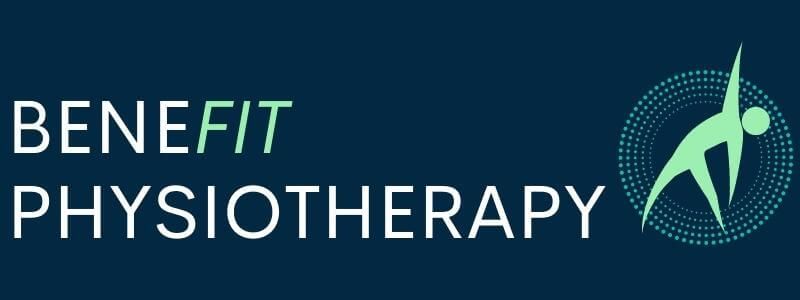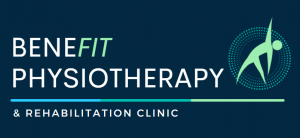Maintaining good posture is vital for overall well-being, but in today’s world, our sedentary lifestyles often lead to poor posture.
Slouching at desks, hunching over smartphones, and insufficient physical activity all contribute to postural imbalances.
Fortunately, physiotherapy offers a holistic approach to postural correction by addressing the root causes of bad posture and helping individuals restore good alignment.
In this blog post, we will explore the causes of poor posture and discuss how physiotherapy can improve it.
Causes of Bad Posture
Several factors contribute to the development of poor posture. One of the primary causes is prolonged sitting, especially in poor ergonomic positions. Hours spent hunched over a desk or computer can lead to rounded shoulders, forward head posture, and weakened back muscles.
Even with the perfect ergonomic setup, poor postures can continue to exist. This can be due to muscle imbalances, where some muscles become overly tight and others weak. For example, tight chest muscles and weak upper back muscles can result in a rounded upper back or “hunchback” appearance.
Addressing these intrinsic causes of poor posture can provide great long-term results.
Ways Physiotherapy Can Improve Poor Posture
Physiotherapy plays a vital role in identifying and addressing the root causes of poor posture.
A physiotherapist will conduct a comprehensive assessment to evaluate your posture, muscle imbalances, and movement patterns. Based on this assessment, a personalised treatment plan can be developed.
Here are some common ways physiotherapy can improve poor posture:
Postural Education
Physiotherapists educate patients about correct posture and ergonomics. They provide guidance on how to maintain optimal alignment while sitting, standing, and performing daily activities. They may suggest modifications to workstations, including ergonomic chairs and desks, to support better posture.
Strengthening Exercises
Physiotherapists prescribe targeted exercises to strengthen weak muscles and stretch tight ones. These exercises focus on improving core stability and strengthening the back and neck muscles. Strengthening the postural muscles helps maintain a more upright and aligned posture.
Manual Therapy
Physiotherapists utilise various hands-on techniques to relieve muscle tension, reduce pain, and restore joint mobility. Techniques like massage, myofascial release, and joint mobilisation can help correct imbalances and improve postural alignment.
Body Awareness and Proprioception Training
Physiotherapy emphasises body awareness and proprioception, which is the ability to perceive the body’s position in space. Through specific exercises and movements, individuals learn to better control their posture, allowing for more mindful and balanced movement.
Functional Training
Physiotherapists incorporate functional exercises into their treatment plans, mimicking real-life activities to improve postural control. This helps patients develop strength and coordination to maintain proper posture during daily tasks and movements.
Benefits of Improved Posture
Pain Reduction
Poor posture often leads to musculoskeletal pain, particularly in the neck, back, and shoulders. Correcting postural imbalances prompts postural efficiency to alleviate stress and tension on the muscles and joints to reduce pain.
Increased Energy and Vitality
Good posture allows for optimal breathing and blood flow, enhancing oxygenation and nutrient delivery to the body’s tissues. By improving circulation and removing unnecessary strain on the body, individuals often experience increased energy levels and an overall sense of vitality.
Enhanced Physical Performance
Improved posture helps optimise biomechanics, allowing muscles to work more efficiently. This can lead to improved athletic performance, increased strength, and enhanced movement patterns.
Improved Digestion
Proper posture can aid digestion by allowing the organs in the abdominal region to function optimally. Slouching or hunching can compress the digestive organs, leading to issues such as acid reflux and slowed digestion.
Boosted Confidence and Mental Well-being
Good posture not only improves physical health but also positively influences mental well-being. Standing tall with proper posture promotes self-confidence and a positive self-image. Additionally, research suggests that maintaining good posture can positively impact mood, reducing symptoms of depression and anxiety.
Physiotherapy provides a comprehensive and effective approach to postural correction. By addressing the causes of poor posture and utilizing a range of therapeutic techniques, physiotherapists can help individuals regain correct alignment. Whether you spend long hours at a desk or have developed postural imbalances from other activities, seeking physiotherapy guidance can play a pivotal role in enhancing your overall well-being. Invest in your posture today for a healthier and more vibrant tomorrow.
Book an appointment at Benefit Physiotherapy if you require assistance with postural correction or call us to discuss how we can help you with your posture.
One-on-One Physiotherapy Care - Complete Attention - You Deserve It !
Contact Us today to find out how we can help you.






